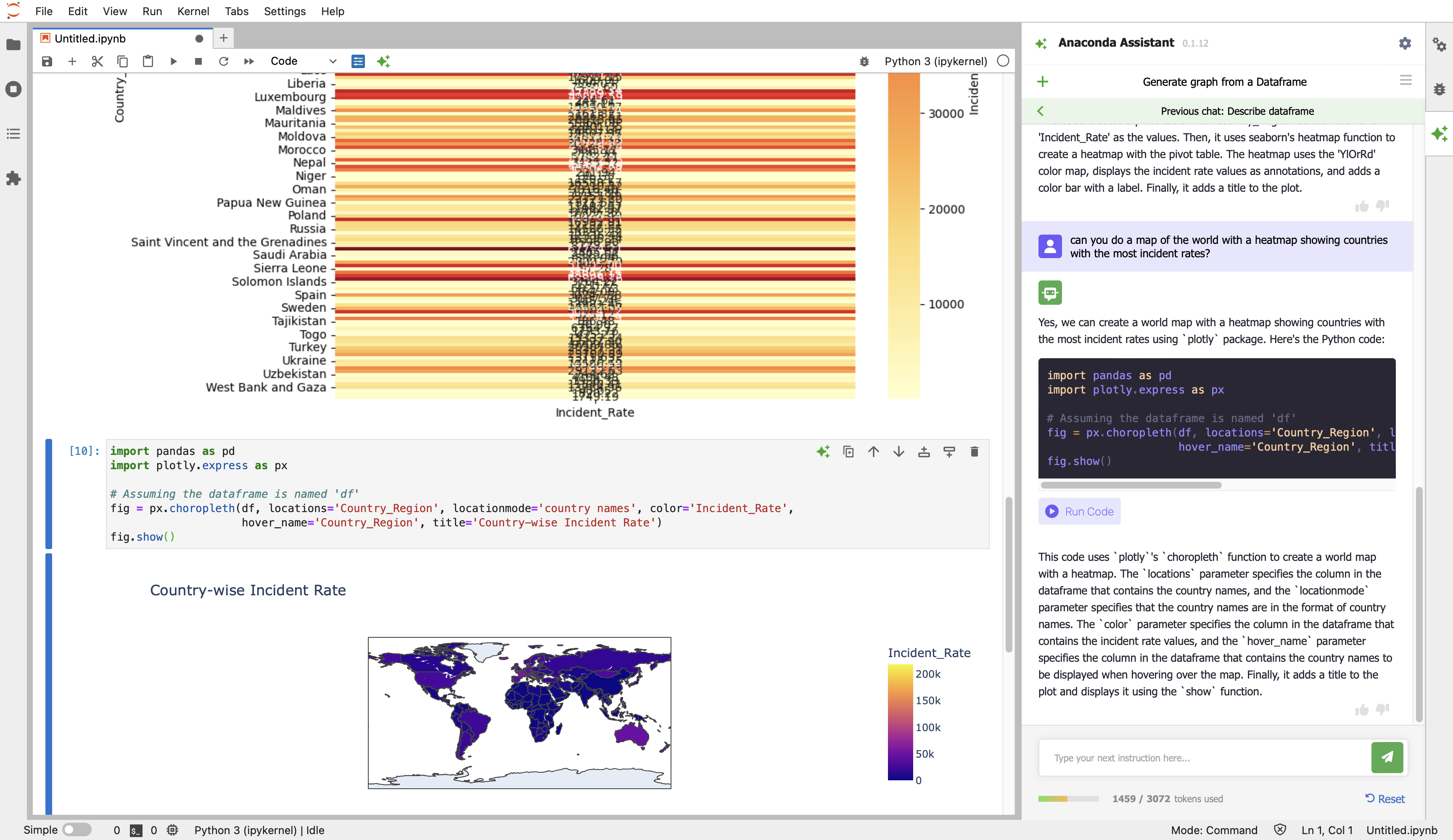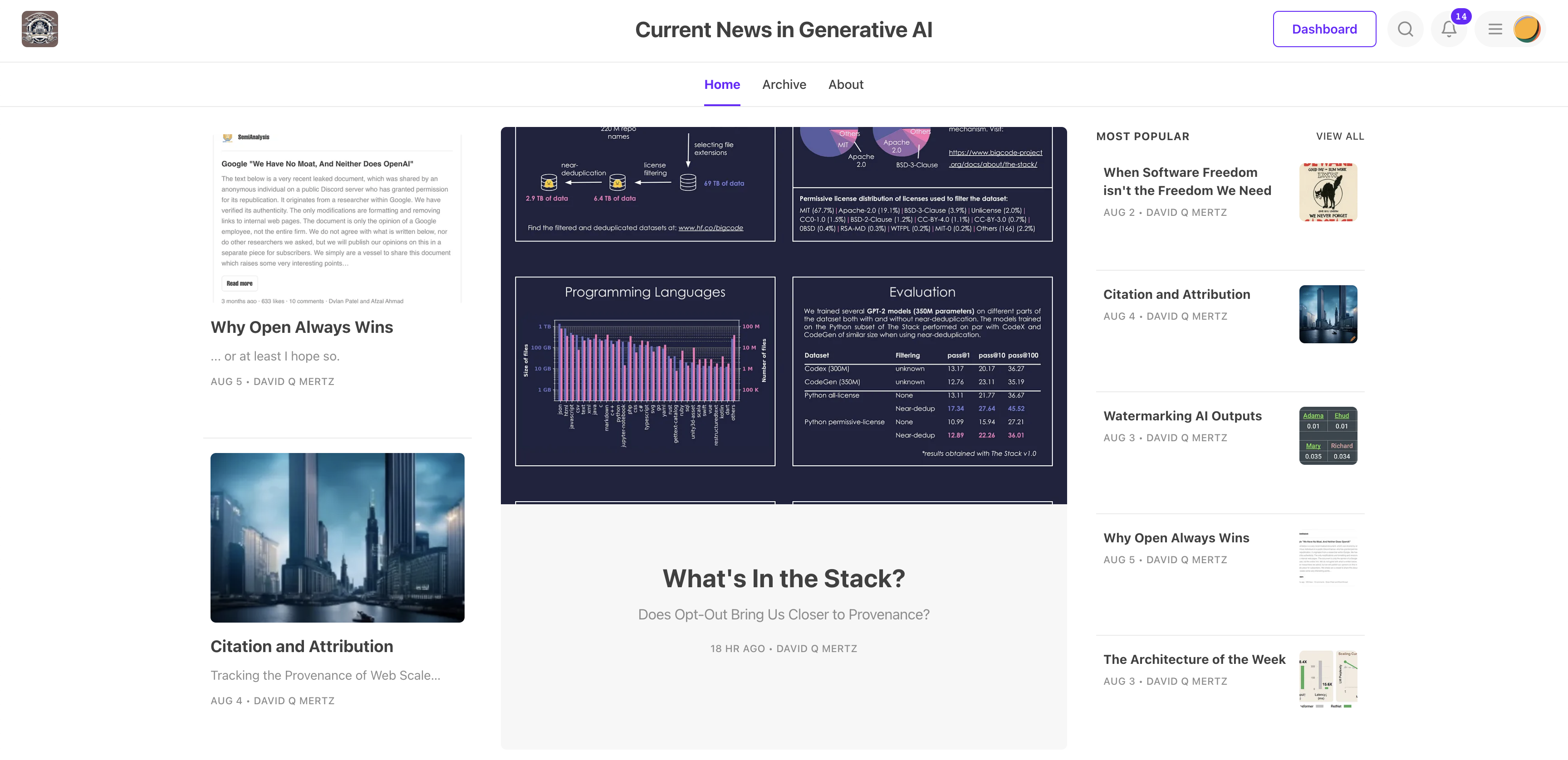Anaconda Assistant Launches to Bring Instant Data Analysis, Code Generation, and Insights to Users


Anaconda is delighted to announce the efforts of David Mertz, Ph.D. and collaborators to follow and document the rapidly evolving landscape of generative artificial intelligence (AI). Things are changing quickly across numerous domains: technical, legislative, emergent capabilities and uses for AIs, in societal consensus and sentiments about the rights of creators, and often simply in the chattering background of the commentariat.

Since we started this Substack blog—with brief articles accompanied by detailed links to resources, appearing approximately daily—we have addressed topics such as watermarking, identifying provenance of training corpora, industry consortia directed at shaping the regulatory framework around AI, plausible near-future changes in the dominant neural networks architectures used by machines, and other topics.
The general format of each post on the “Current News in Generative AI” blog is to highlight one or two interesting new articles, usually ones with decent technical depth, and provide three to five paragraphs of commentary on the significance and background of the research linked to. Often, the longer content linked includes research articles on the techniques and architecture of current or incipient machines. But often as well, we link to articles in law reviews, to policy proposals and white papers by governments and regulators, or to academic comments by historians, philosophers, political scientists, and cultural theorists, who illuminate the likely societal changes generative AI is bringing about.
We invite you to subscribe to the blog and avoid missing any new posts (published approximately daily) at https://licenseai.substack.com/. Substack offers a variety of update cadences (including no email at all, if you prefer—but we’d still love to see who is following us). Happy reading!
Somewhere after earning a doctorate in political philosophy, David learned that post-structuralism isn’t actually where the money is. He fell into a life of data science, by way of writing rather a lot of books and articles about Python programming, and scientific/numeric computing in particular. Somewhere on that path, he was a Director of the Python Software Foundation for six years, and has been co-chair of its Trademarks Committee for 15 years.